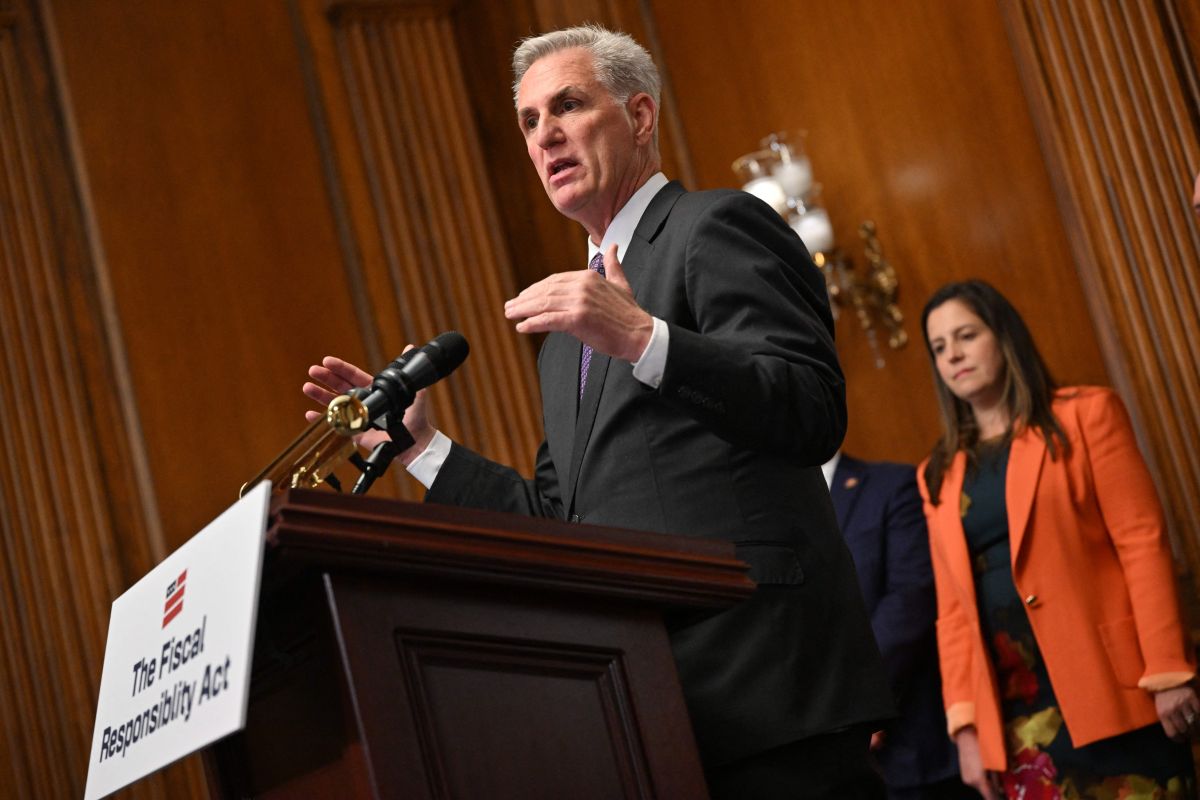The United States Lower House on Wednesday gave its support to the pact between US President Joe Biden and Republican leader Kevin McCarthy to raise the debt ceiling in exchange for some cuts in public spending.
The bill will now go to the Senate, five days before the deadline set by the Treasury Department, after which the country could default on its national debt.
A large majority of both Democratic and Republican legislators voted in favor of the measure, after several conservatives from the most extreme wing of the party showed their rejection of the initiative, considering that it does not do enough to limit spending.
Specifically, there were 314 supports (165 from Democrats and 149 from Republicans). 46 Democrats and 71 Republicans voted against. Two members of each party did not vote.
In a pre-vote speech, House Speaker Kevin McCarthy encouraged his fellow party members to vote in favor of the measure, calling it “the biggest spending cut in American history.”
“Taxpayers will save about $2.1 billion dollars. And for the first time in more than a decade, Congress will spend less next year than this year,” McCarthy said.
If approved in the Senate, with a Democratic majority, and receive Biden’s signature, the measure will raise the debt ceiling for the next two years, that is, until after the next presidential elections.
In return, the White House agrees to reduce spending levels and introduce some requirements for food aid programs and vulnerable families.
In addition, part of the boost to the public Treasury previously approved by the Democrats is reduced, and the process for processing infrastructure projects is streamlined, limiting the time that can be delayed to carry out environmental analyses.
“New roads, bridges, highways and gas pipelines will be built sooner and faster thanks to the reforms of this rule,” McCarthy said at a press conference after the vote.
The Republican defended the agreement against those who consider that it does not do enough to reduce spending.
“We were never going to have them all,” he conceded, before affirming that he will continue working to expand the limits on public spending and other conservative priorities included in the pact.
In a statement, Biden thanked McCarthy for negotiating in good faith, and called on the Senate to pass the measure “as soon as possible.”
The approval of the agreement in both chambers of Congress is crucial so that the country does not default on its public debt, after the debt ceiling was reached last January, the legal limit to the money that the United States can borrow to meet your commitments.
Lawmakers have until June 5 to approve the measure in both chambers, the date on which the Treasury Department estimates that the country will exhaust its reserves.
Keep reading:
Democrats and Republicans begin debate on raising the debt ceiling in the House of Representatives
· Democratic congressman assures that his party will not let the US fall into default
DeSantis vows to send Biden “back to his basement” at campaign rally as he criticizes debt ceiling deal
